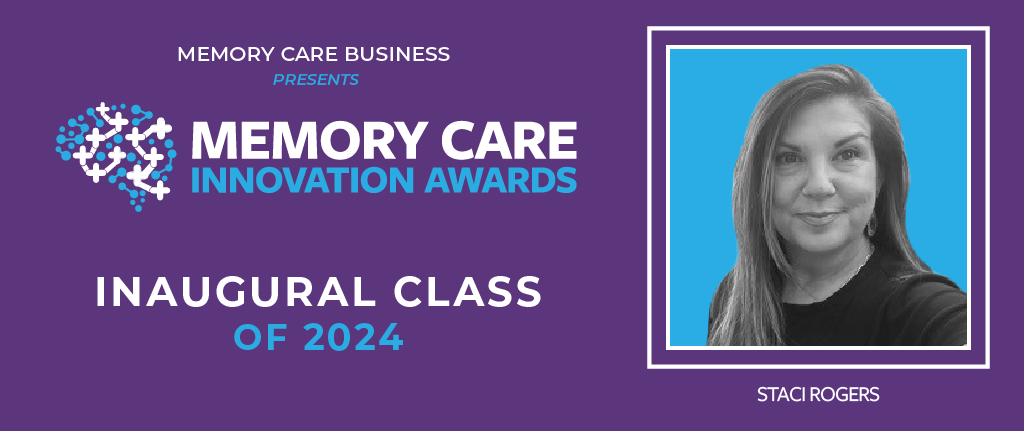The Memory Care Innovation program is designed to recognize passionate and innovative industry members who are shaping the future of cognitive care across behavioral health, home health and home care, hospice and palliative care, senior housing, and skilled nursing. To see this year’s inaugural Memory Care Innovation Award winners, visit https://innovation.memorycarebusiness.com/.
Staci Rogers, the vice president of operations at Visiting Angels, has been named a 2024 Memory Care Innovation Award Winner.
To become a Memory Care Innovation Award winner, an individual is nominated by their peers. The candidate must be a high-performing employee who knows how to put vision into action, and serve as an advocate for those living with memory-related disorders and the committed professionals who ensure their well-being.
Rogers sat down with Home Health Care News to talk about the need for more stakeholders to be familiar with dementia care, and why that matters.
What drew you to working in memory care?
I have always loved helping others. I had the opportunity to work very closely with a family who had a loved one diagnosed with early-onset dementia. I was able to learn so much from this family and dementia from the early stages of her diagnosis through the progression of the disease. Helping the family navigate the disease process and life changes for the entire family taught me a lot and I have been dedicated ever since.
What’s your biggest lesson learned since starting to work in memory care?
It is difficult to get others to look beyond the basics of physical care someone needs, and tap into the connections we can make with those living with cognitive impairment. Always be the voice for those who no longer have one, and music is medicine!
If you could change one thing with an eye toward the future of memory care, what would it be?
A world where people are educated about dementia and memory care. Not just those directly impacted by it but our entire communities — health care systems, first responders and community members. This would allow more people with memory impairment to live a life safely in our communities long term with the right support.
What is the biggest obstacle to being innovative in memory care, and how do you try to overcome that obstacle?
The biggest obstacle to being innovative in memory care is conveying to others the passion and emotional impact it evokes without first-hand experience. It’s challenging to teach and explain to others the profound feelings that can be created, and the deep connections we can make using technology, especially for engagement purposes.
In a word, how would you describe the future of memory care?
I would describe the future of memory care as “visionary.”
What quality must all Memory Care Innovation Award winners possess?
Creativity, tenacity, positivity, a loving heart and open mind.
If you could give advice to yourself looking back to your first day in the industry, what would it be and why?
Always have an open mind and heart. There is something to be gained with every connection you make, big or small. Never give up if you believe in something.



